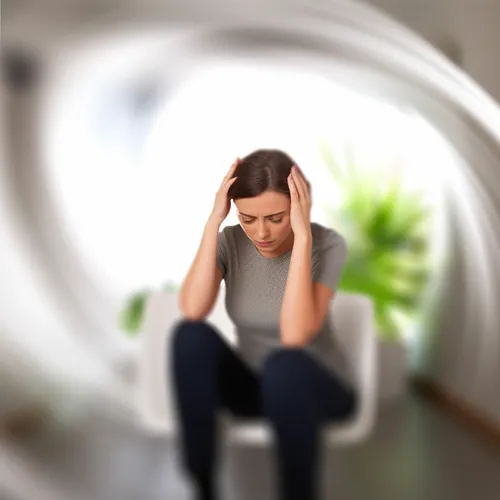Vertigo is a symptom where you feel like everything around you is spinning or moving. It can cause dizziness and a loss of balance. Vertigo is not a condition itself, but a symptom of an underlying problem. Vertigo can last from a few seconds to hours or even days in severe cases. It can happen as sudden attacks of dizziness that come and go.
What Causes Vertigo?
The most common cause of vertigo is a problem with the inner ear. Some inner ear issues that can lead to vertigo include:
- Benign paroxysmal positional vertigo (BPPV) – This is common in older people and happens when small particles clog up in the inner ear canal. It causes extreme dizziness when the head is moved certain ways.
- Labyrinthitis – An inner ear infection, normally caused by the cold or flu virus.
- Ménière’s disease – A progressive disease that causes attacks of severe dizziness and can affect hearing. It may also lead to tinnitus.
- Migraine – For some people, vertigo is the only migraine symptom and occurs with no headache.
- Medications can sometimes cause vertigo as a side effect.
Less common causes include stroke, brain tumour, or multiple sclerosis.
Vertigo Triggers
There are certain triggers that can set off vertigo attacks or make symptoms worse in people prone to vertigo:
- Sudden head movements
- Looking up or down
- Getting in and out of bed
- Stress and anxiety
- Lack of sleep
- Dehydration
- Diet high in salt or caffeine
- Alcohol use
- Flickering lights
Avoiding triggers where possible can help manage vertigo symptoms. Keeping stress low, staying hydrated, and getting adequate sleep are some general tips.
When to See a Doctor
See a doctor if vertigo symptoms are severe, last more than a few days, or keep recurring. Get urgent medical help if vertigo occurs with:
- Weakness or numbness
- Difficulty speaking
- Headache
- Chest pain
- Changes in vision or hearing
- Loss of consciousness
These can indicate a more serious cause like stroke or brain injury. Seek help quickly if vertigo occurs after a head injury.
Managing Vertigo
Along with treatment prescribed by a doctor, some self-care tips can help manage vertigo:
- Take care when moving, sit down if dizzy, use support while walking
- Avoid positions that trigger vertigo like looking up high
- Use dim lighting and avoid screens or flickering lights during attacks
- Try vestibular rehabilitation exercises from a physical therapist
- Keep stress low with relaxation techniques
- Stay hydrated and limit caffeine and alcohol
- Take breaks from reading or screens when symptomatic
- Use anti-nausea medication if needed
Treatment Options
Common vertigo treatments include:
- Medications – Drugs to reduce dizziness like antihistamines. Also nausea or migraine medications.
- Vestibular therapy – Special exercises to retrain the balance system. These are often prescribed after diagnosing BPPV.
- Surgery – Rarely needed but an option for severe inner ear conditions that don’t respond to other treatments.
- Lifestyle changes – Avoiding triggers, managing stress, hydration, sleep and diet changes.
Treatment aims to resolve the underlying cause and ease symptoms. Most people fully recover from vertigo with time. See a doctor if it persists or significantly impacts daily activities.
What Are the Symptoms of Vertigo?
- Dizziness or a spinning sensation are the main symptoms.
- Nausea or vomiting can occur from the dizziness.
- Loss of balance is common.
- Hearing problems may happen if the cause is an inner ear issue.
During an attack, try to rest in a quiet, dark room and sit down when dizzy.
How is Vertigo Diagnosed?
A doctor will discuss your symptoms and may do a balance test. They might refer you to a specialist for further tests like scans or hearing tests.
Conclusion
Vertigo is a symptom of various underlying conditions rather than a single disease itself. Most cases are caused by inner ear problems. Diagnosis involves discussing symptoms and balance testing. Treatment depends on the cause but aims to manage symptoms and improve balance. In many cases, vertigo resolves over time without specific treatment.
Photo “Vertigo” by Anthony Cunningham for Zoom Health
Zoom Health is a leading UK supplier of Home Health Tests and Earplugs





